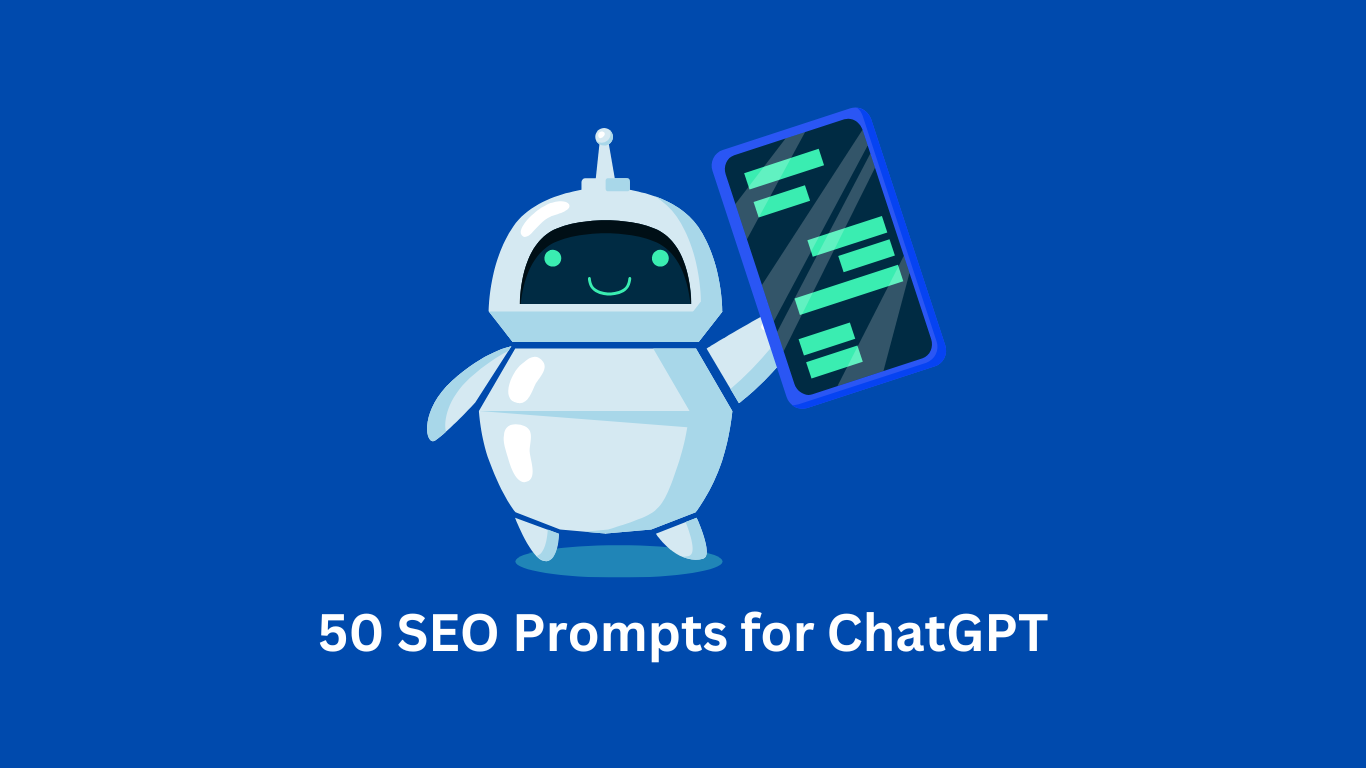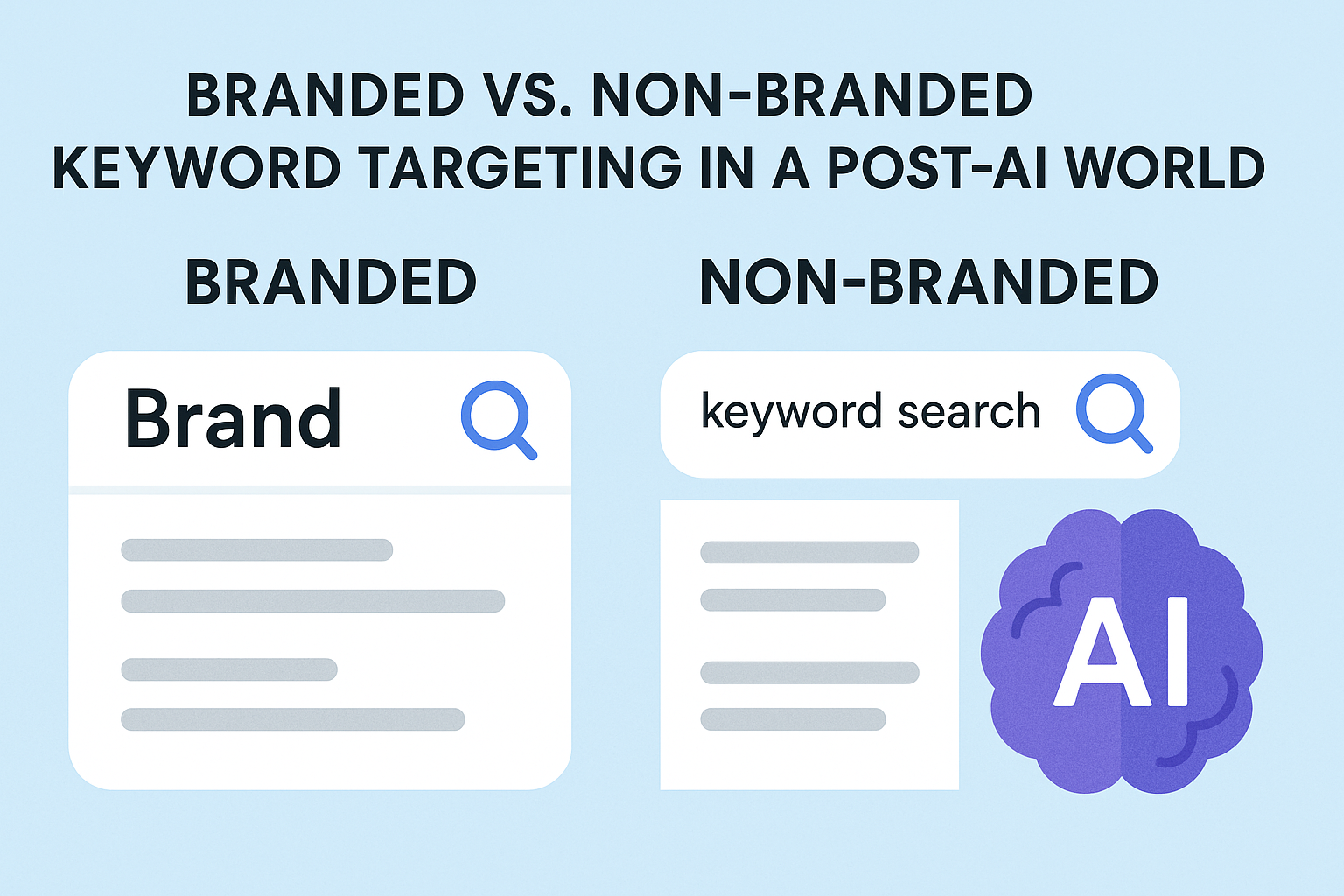In today’s digital age, getting your website noticed is crucial. SEO is the key to unlocking your online potential. But crafting SEO-friendly content can be time-consuming. AI tools like ChatGPT can streamline this process. This guide provides 50 SEO prompts to supercharge your content marketing, including keyword research.
50 Smart SEO Prompts for ChatGPT
1. Generate a list of related keywords for [topic]
This prompt helps you identify keywords that are contextually related to your main topic, broadening your reach by including variations and similar terms.
2. Identify long-tail keywords for [topic] content optimization
Long-tail keywords are essential for attracting niche traffic with higher intent. Use this prompt to find phrases that might be easier to rank for.
3. Find top-performing keywords for [topic]
Get insights into the keywords that competitors or industry leaders are using successfully, and consider incorporating these into your strategy.
4. Create meta descriptions and title tags for [topic]
Meta descriptions and title tags impact click-through rates. Ask ChatGPT to craft engaging, SEO-friendly options for your pages.
5. Find opportunities for internal linking for [topic]
Internal linking enhances navigation and helps distribute link equity. Use this prompt to identify the best pages on your site to link to for a specific topic.
6. Generate blog topics for posts and articles on [topic]
Need content ideas? ChatGPT can generate blog post ideas that address various angles of your topic, helping you build a robust content library.
7. Research industry-specific terminology for use in [topic] content
Use this prompt to ensure your content resonates with your audience by including terminology that’s specific to their field.
8. Find authoritative websites for [topic] link-building
Get a list of reputable websites in your niche where you could potentially secure backlinks.
9. Generate a list of LSI keywords for [topic]
Latent Semantic Indexing (LSI) keywords are related terms that help search engines understand your content. This prompt will generate relevant LSI keywords to use.
10. Create an XML sitemap focused on [topic]
Sitemaps improve crawling efficiency. ChatGPT can help you create or structure an XML sitemap for better visibility of your topic-related pages.
11. Research the best meta tags for pages related to [topic]
Meta tags, such as “description” and “robots,” can affect your SEO performance. Use this prompt to get optimized tags for each page.
12. Find keywords with low competition for [topic]
Low-competition keywords can help new or smaller sites start ranking more easily. Use this to target phrases with high potential and minimal competition.
13. Track a list of competitors for [topic] keywords
ChatGPT can generate a list of your competitors targeting similar keywords, giving you insights into their strategy.
14. Generate content suggestions for images related to [topic]
ltImprove your visual content’s SEO by creating optimized alt text and file names for images related to your topic.
15. Create a list of guest blogging sites about [topic]
Guest blogging helps with link-building and authority. Use this prompt to find sites that accept guest posts in your niche.
16. Research the best hashtags for social media posts on [topic]
Hashtags can expand your reach on social media. Use this prompt to find popular, relevant hashtags for your topic.
17. Create a list of influencers in the [topic] niche
Influencer collaborations can amplify your content’s reach. ChatGPT can identify influencers in your niche.
18. Find the best times to publish content related to [topic]
Timing can influence engagement. Use this prompt to determine optimal times for publishing based on your audience’s activity.
19. Research the best citation websites for [topic]
For local SEO, citations are crucial. Get a list of high-DA citation sites where you can list your business information.
20. Find the most effective keywords for paid SEO campaigns on [topic]
Optimizing paid campaigns requires specific keywords. Use ChatGPT to get keyword ideas tailored for paid search.
21. Create a keyword research framework for [topic]
This prompt helps you structure your keyword research process, so you can identify the best keywords to target.
22. Research site schema markup ideas for [topic]
Schema markup can enhance your search results. Ask ChatGPT for structured data types that apply to your topic.
23. Find the best search tags for [topic] content
Tags can help categorize and organize your content. Use this prompt to identify the best tags for your posts.
24. Create a list of outreach and link-building opportunities for [topic]
Effective link-building starts with good outreach. This prompt generates ideas for potential partners in your niche.
25. Find authoritative anchor text for [topic] backlinking
Anchor text is critical in SEO. Use this prompt to get suggestions for keywords to use as anchor text in backlinks.
26. Find the best keywords for [topic] PPC campaigns
PPC campaigns benefit from targeted keywords. ChatGPT can help you find relevant terms for your paid campaigns.
27. Generate ideas for SEO-friendly FAQs about [topic]
FAQs can improve user experience and SEO. Use this prompt to come up with common questions to include in your content.
28. Write optimized blog post outlines for [topic]
Creating outlines saves time and keeps content organized. This prompt gives you a structured plan for writing on your topic.
29. Research trending questions in forums about [topic]
Forums are great for finding what people want to know. Use this prompt to identify common questions around your topic.
30. Create a list of high-DA directories to list [topic]-related sites
Directory listings improve SEO by providing backlinks. ChatGPT can suggest directories for your niche.
31. Develop a content calendar focusing on [topic]
Consistency is key in SEO. This prompt helps you create a publishing schedule around your topic.
32. Generate content ideas for email marketing on [topic]
Email marketing can complement your SEO efforts. Use this prompt for ideas to engage your audience via email.
33. Create SEO tips specifically for e-commerce stores on [topic]
E-commerce SEO can be different from blog SEO. Get tailored advice for your online store with this prompt.
34. Generate unique angles for writing articles on [topic]
This prompt encourages creativity by helping you find unique perspectives for your content.
35. Identify low-competition keywords for [topic] blog posts
Low-competition keywords can help newer content rank more easily, especially for blog posts.
36. Create a list of keywords for social media ads on [topic]
Social media ads need targeted keywords. ChatGPT can generate ideas that appeal to your audience on social platforms.
37. Research frequently asked questions on [topic]
FAQs improve SEO and user experience. Use ChatGPT to find relevant questions for your content.
38. Generate ideas for video content on [topic]
Video content is great for SEO. Use this prompt to generate ideas for YouTube or other video platforms.
39. Create SEO strategies for boosting local search visibility for [topic]
Local SEO requires special techniques. ChatGPT can provide tips to help your content rank locally.
40. Identify backlink opportunities from [topic] niche websites
Quality backlinks are critical to SEO success. This prompt helps you find websites in your industry for backlinking.
41. Generate a list of social media content ideas on [topic]
Social media content can drive traffic to your site. Use this prompt to find ideas for engaging your audience on social platforms.
42. Find the best ways to repurpose existing content on [topic]
Repurposing content can extend its reach. Use ChatGPT to generate ideas for new formats, like infographics or podcasts.
43. Develop an SEO checklist for optimizing [topic] articles
An SEO checklist ensures you don’t miss essential optimizations. ChatGPT can create a list tailored to your topic.
44. Generate internal linking suggestions for [topic] pages
Internal links improve site navigation. This prompt helps you create a linking strategy for related pages.
45. Create content ideas that integrate [topic] with trending topics
Combining your topic with current trends can increase engagement. Use ChatGPT to identify these opportunities.
46. Generate topic clusters and pillar content ideas for [topic]
Pillar content improves SEO by covering a topic in-depth. Use this prompt to develop a strong topic cluster.
47. Create alt text suggestions for images related to [topic]
Alt text is essential for accessibility and SEO. Use this prompt to optimize your images.
48. Research competitors’ strategies for ranking on [topic]
Understanding competitors helps refine your approach. Use ChatGPT to analyze successful strategies in your niche.
49. Find seasonal keyword opportunities for [topic]
Certain topics have seasonal spikes in interest. This prompt helps you plan content around these trends.
50. Develop an SEO guide for new content creators in the [topic] field
Help newcomers by creating a guide that outlines the essentials of SEO for your topic.
Conclusion
By using AI-powered SEO prompts, you can significantly improve your website’s visibility and attract more organic traffic. Remember, SEO is an ongoing journey. Keep experimenting and stay updated on the latest trends. With ChatGPT as your tool, you’re well-equipped to achieve your SEO goals.

The Search Engine Cage team is on a mission to educate entrepreneurs. We make things easier for the small business owner, by writing articles that help them to understand SEO and Digital Marketing.







